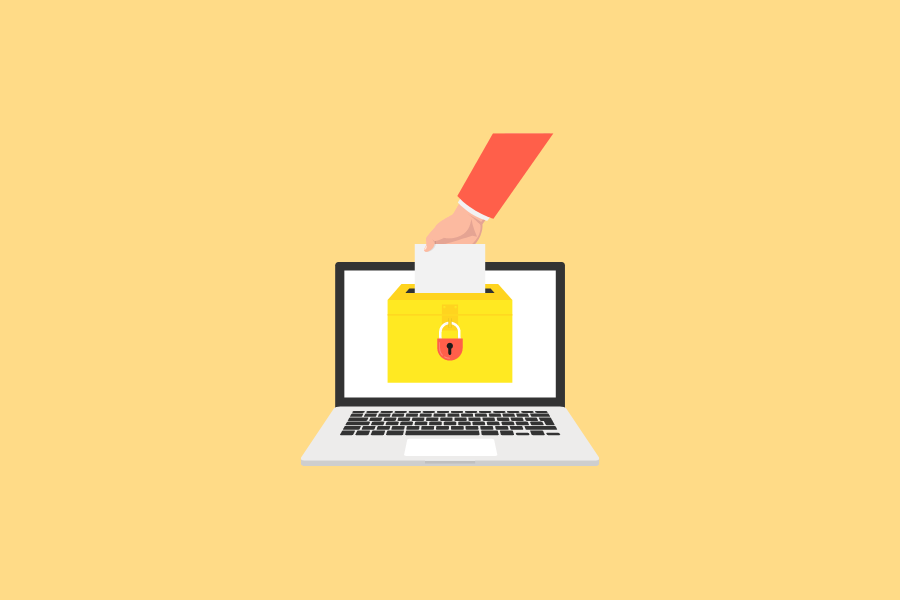An annual shareholder meeting is one of the main ways in which a company decides its future. Not only is it the right time to gauge the success of investments, but it also gives shareholders the opportunity to discuss business challenges and strategies.
What should be discussed at a shareholders’ meeting?
A meeting of shareholders is the ideal time and place to discuss any topic related to a company and its past, current, and future projects. Every individual shareholder is considered to be an owner of the company and has the right to be informed about business activities.
The exact themes that will be covered during a shareholders’ meeting change between the nature of the business and the personal interests of the shareholders. Certain overarching topics are nonetheless common in yearly meetings.
Examples of these include:
- Administrative tasks: Changes to the bylaws can be proposed, discussed, and voted upon during a company’s annual meeting. Thanks to online voting system implementation, voting can be performed in a fast and confidential manner. This means that the time it would take to organize a vote can be better spent discussing other important manners.
- The board of directors: The election of directors may become relevant if there is a potential change in leadership. When this happens, shareholders are entitled to vote for the board of directors or to elect new board members.
- Company values: A company’s civic responsibility, accountability, philosophy, and drive to innovate play a large role in distinguishing it from the rest. An annual meeting is a great moment to discuss a company’s mission, vision, and other overarching themes that define its identity.
- Goals: Having clear short- and long-term goals is indispensable for the efficient functioning of a business. Annual meetings are prime time to let all members and investors know more about current and future strategic actions. Information about future expectations should also be made available.
- Results: shareholders should receive tangible information about how the business is doing. An annual report containing quantifiable evidence of a business’s performance will be expected by everyone in attendance. Likewise, information about an increase in the workforce, customer base, or cash flow will be very valuable to shareholders.
How do you conduct an annual shareholders’ meeting?
There is no specific set of steps to follow during a shareholders’ meeting and most corporations design the procedures that fit them best. The actual way the meeting will be conducted is up to the board members, who are the ones who decide how much time every keynote speaker has, if the meeting will be recorded, and so on.
Scheduling a shareholders’ meeting
To begin with, all shareholders should receive an invitation to the meeting. Registered holders have the right to vote on the election of the board of directors regardless of how many shares they own in the company. In addition, shareholders who meet certain requirements should be able to make their own nominations.
The following information should be made available to shareholders prior to an annual meeting:
- Proposed resolutions
- Company reports
- Supporting documentation
- Meeting minutes from the last annual shareholder meeting
Preparing the minutes
The minutes are a written record that outlines all the special meeting decisions. Someone in an administrative position, such as a secretary, is typically responsible for the elaboration of this document. There is no rule stating how long or specific meeting minutes must be, but it is in the best interest of shareholders that these are as detailed as possible. Minutes help one understand the main ideas and outcomes of a shareholders’ meeting.
6 tips to conduct an annual shareholders meeting
1. Invest in a digital voting platform
The implementation of an online voting system will simplify the vast majority of logistic tasks related to decision-making, incentivize a fast and dynamic conversational flow, and protect every shareholder’s personal data from cyber-security threats.
The competencies of an innovative online voting platform allow companies to:
- Provide an intuitive voting experience: Digital voting platforms can be accessed from any device capable of accessing the Internet. This allows shareholders to view proposals and vote on them from the comfort of their smartphones.
- Offer multiple voting methods: Not only is the software’s functionality and user interface designed with maximum appeal in mind, but it is also highly customizable. Companies can decide on the voting methods, branding options, languages, and much more.
- Automatically keep track of results: Security features keep voting data safe via encryption but it is nonetheless easily accessible to those with the right credentials. Voting data is gathered in real-time, and the results can be made public as soon as the voting period ends. This saves a considerable amount of time and stress, making any kind of meeting a much more agreeable and an engaging experience.
2. Preparing for a Q&A session is essential
When someone invests in a company, they always do it looking to benefit. While some shareholders only care about how their money is being invested, others have a genuine interest in a company and the products or services it produces. Regardless of their incentives, all shareholders should have the time to ask about the topics that concern them.
Questions can be about any theme relating to the company, but the following items can be expected:
- Annual and quarterly performance.
- Information regarding board diversity and gender pay equity.
- Security concerns, whether from cybersecurity threats or company policy regarding gun safety, CCTV systems, and similar themes.
- Improvements to the company’s social responsibility policy.
- Information about new products or the use of intellectual properties.
Presiding officers who will be responsible for answering questions should be well-versed in a broad range of topics related to the functioning and image of the company. If any difficult questions are anticipated, then these should be pre-meditated before the Q&A session in order to deliver brief, clear, and reliable answers. For instance, if a merger or acquisition has been proposed, the details of this proposal should be made clear to all shareholders.
3. Take advantage of social media
Social media sites have become efficient promotional tools for every product and service on the market. Companies with a distinguished social media presence can use that outreach to let the world know what important and inspirational developments have happened during an annual business meeting.
Depending on the nature, size, and scope of a company, it may be advantageous for the social media and legal teams to communicate and decide what is the best content to display on the Internet. Some information that social media users could find exciting might also be of a sensitive nature or could be posted in a way that goes against company policy.
4. Security should be a major concern
Just as with any public event, an annual shareholders’ meeting is a gathering of people and should therefore be handled with the best security measures available. Depending on the size of a company and the number of shareholders, distinct actions can be taken to protect everyone’s identity, personal space, and physical integrity.
Proper security is a considerable logistic challenge. Companies must consider how safe their venue is and must also discern if personnel will be required to ask for the identification of check bags.
Regarding the digital identity of shareholders, the most effective method of keeping it safe is via encryption algorithms. Implementing an online voting system helps keep the personal information of the members of any kind of organization safe from hackers or other malicious third parties by keeping it in encrypted, secure databases.
Top features your online voting system should have
5. Set rules for journalists and other guests
Sometimes journalists and other individuals will show interest in attending a shareholders’ meeting. Companies can always take advantage of the free press, but it is indispensable to guarantee these individuals don’t become a nuisance to shareholders.
If guests are going to be present at a shareholders’ meeting, then a special meeting area should be separated for them. This way they can keep to their duties without interfering. Companies should make clear what their questions policy is to avoid shareholders being interrupted by inappropriate questions.
6. Keep shareholders informed
The relationship between a company and its shareholders does not end once a meeting is over. Many shareholders have a busy schedule and can’t actively engage with the companies they invest in. Reaching out to shareholders to communicate business matters that concern them is a great way of letting them know that their money is in good hands.
Shareholder engagement can be easily managed to make sure everyone has the right information about past and future annual meetings. Thanks to the notification solutions integrated into Option.vote’s online voting platform, the shareholders of a company can receive alerts and reminders to let them know when the next annual meeting is coming and what are their duties and responsibilities.

















